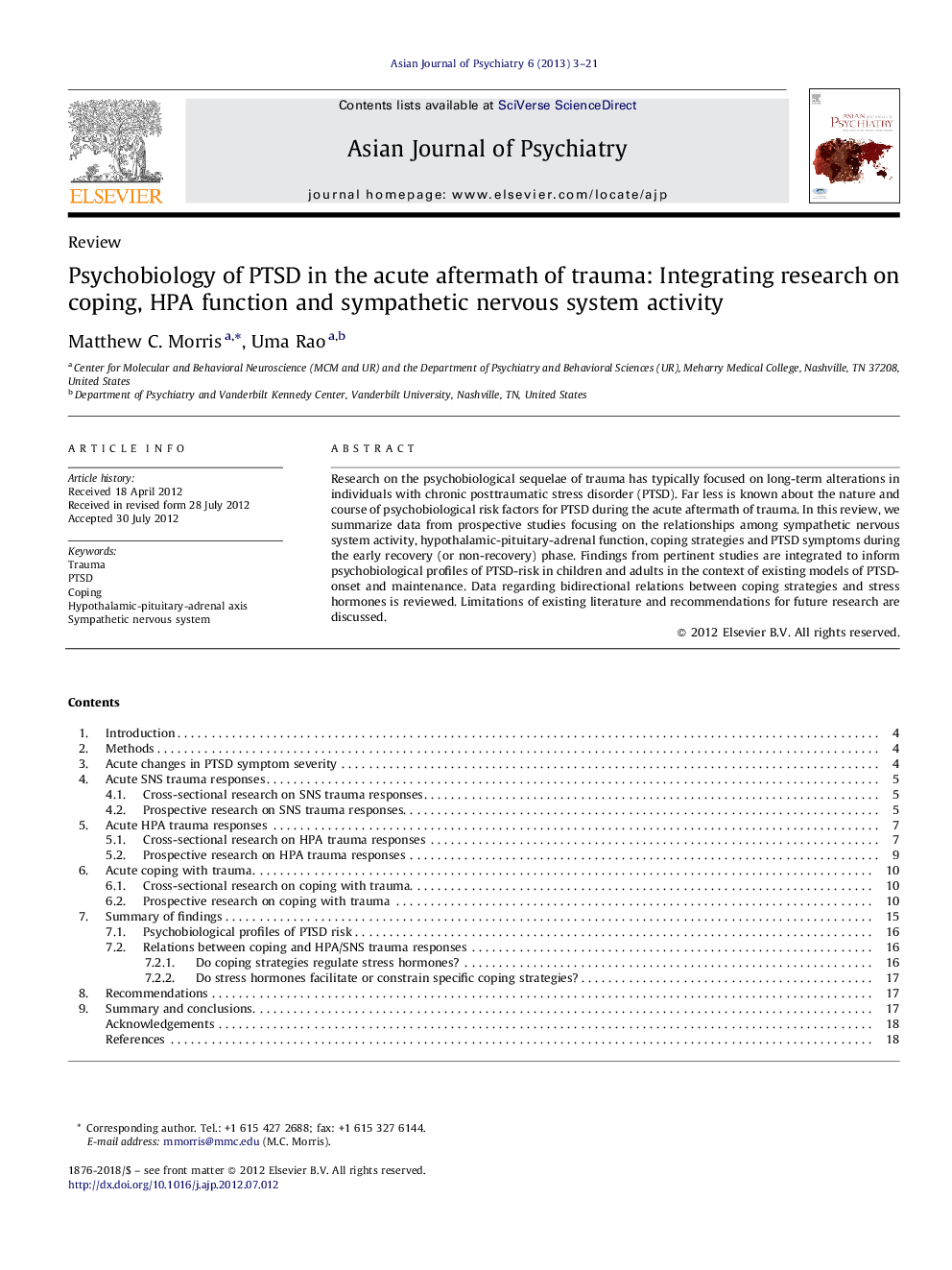| Article ID | Journal | Published Year | Pages | File Type |
|---|---|---|---|---|
| 315527 | Asian Journal of Psychiatry | 2013 | 19 Pages |
Research on the psychobiological sequelae of trauma has typically focused on long-term alterations in individuals with chronic posttraumatic stress disorder (PTSD). Far less is known about the nature and course of psychobiological risk factors for PTSD during the acute aftermath of trauma. In this review, we summarize data from prospective studies focusing on the relationships among sympathetic nervous system activity, hypothalamic-pituitary-adrenal function, coping strategies and PTSD symptoms during the early recovery (or non-recovery) phase. Findings from pertinent studies are integrated to inform psychobiological profiles of PTSD-risk in children and adults in the context of existing models of PTSD-onset and maintenance. Data regarding bidirectional relations between coping strategies and stress hormones is reviewed. Limitations of existing literature and recommendations for future research are discussed.
► SNS activity is positively associated with PTSD symptoms in children and adults. ► Lower peritraumatic HPA activity is linked to PTSD risk in adults. ► Higher peritraumatic HPA activity is linked to PTSD risk in children. ► Adaptive coping includes social support (received and perceived) and acceptance. ► Maladaptive coping includes avoidance, denial and thought-suppression.
